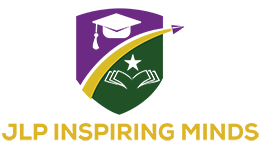
Are you ready to choose your child’s school? There are so many options to consider, but most importantly you need to choose what will be the best fit for your child. A private school curriculum differs from what you’ll find in a public school, and there are pros and cons for each. We’re here to help you with the basics and get you started.
Comparing Public vs. Private School
There are several ways to compare the two kinds of school – the key areas worth noting are the curriculum, teacher requirements, class sizes, and focused subjects. Above all, remember to think of your child’s specific needs when deciding what kind of school will be best for them.
Funding and Curriculum
In the simplest form: public schools are funded by the government, and private schools aren’t which means the curriculums found in each can vary wildly. Public schools, which receive government funding, are influenced by local and federal requirements for the day-to-day curriculum. Certain topics may be left out of the curriculum, or extra topics added in.
Private schools aren’t funded by the government, so this means they have control over the curriculum they choose to teach. Being able to choose a culture and academic environment for your child is a great part of private schools. Depending on the education you’re after for your child, this might be a key factor to take into consideration.
Teacher Training
To teach in a public school, teachers must hold relevant qualifications and be fully licensed. Because private schools aren’t funded by the government, they don’t have to follow this rule. When looking for a private school, make sure that the institution has strict standards for its educators. Just because a private school can hire anyone, a reputable private school will ensure that they hire licensed, quality educators. In fact, many private schools require more than just a background in education and a relevant degree..
Student Numbers
According to The National Center for Education Statistics, private schools have smaller class sizes when compared to public schools. They also have a smaller student body overall. This way, teachers can apply more focus and attention to each individual child without being overwhelmed. Richer conversations, more interactive teaching, and personalized help all work to foster curious minds and give your child the best early start to their education.
Key Subjects
Private schools often excel in a particular subject area. With the freedom of creating their own curriculum, they can add subjects that are often overlooked in public schools. Whether it’s catering to international education requirements for studies abroad or adding emphasis to a specific sports program, a private school might be the choice for you.
Exemplary Education at JLP Inspiring Minds
At JLP Inspiring Minds, we take education seriously. The benefits of private school work to give your child the best start to their academicjourney, while keeping learning fun and engaging. We strive for continuous improvement and hold our educators to high standards, ensuring we’re delivering the best we can. If you want to hear more about our curriculum and what our educators and facility can offer, or if you are interested in our private school admission process, don’t hesitate to give us a call at 954-933-2982.
